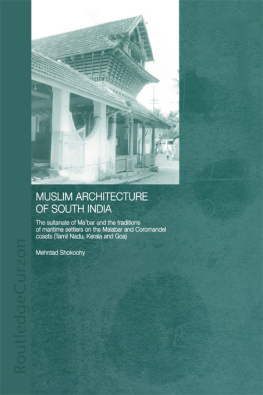PREFACE
For most people, interest in the doings of our forefathers in India dates from our wars with the French in the middle of the eighteenth century. Before then their lives are generally supposed to have been spent in monotonous trade dealings in pepper and calico, from which large profits were earned for their masters in England, while their principal excitements were derived from drinking and quarrelling among themselves. Little account has been taken of the tremendous risks and difficulties under which the trade was maintained, the losses that were suffered, and the dangers that were run by the Company's servants from the moment they left the English Channel. The privations and dangers of the voyage to India were alone sufficient to deter all but the hardiest spirits, and the debt we owe to those who, by painful effort, won a footing for our Indian trade, is deserving of more recognition than it has received. Scurvy, shortness of water, and mutinous crews were to be reckoned on in every voyage; navigation was not a science but a matter of rule and thumb, and shipwreck was frequent; while every coast was inhospitable. Thus, on the 4th September, 1715, the Nathaniel, having sent a boat's crew on shore near Aden, in search of water, the men allowed themselves to be inveigled inland by treacherous natives, who fell upon them and murdered twelve out of fourteen who had landed from the ship. Such an occurrence now would be followed by a visit from a man-of-war to punish the murderers. Two hundred years ago it was only an incident to set down in the ship's log-book. But all such outrages and losses were small in comparison with those to which traders were exposed at the hands of pirates.
It is difficult to realize, in these days, what a terrible scourge piracy was to the Indian trade, two hundred years ago. From the moment of losing sight of the Lizard till the day of casting anchor in the port of destination an East India ship was never safe from attack, with the chance of slavery or a cruel death to crew and passengers, in case of capture. From Finisterre to Cape Verd the Moorish pirates made the seas unsafe, sometimes venturing into the mouth of the Channel to make a capture. Farther south, every watering-place on the African coast was infested by the English and French pirates who had their headquarters in the West Indies. From the Cape of Good Hope to the head of the Persian Gulf, from Cape Comorin to Sumatra, every coast was beset by English, French, Dutch, Danish, Portuguese, Arab, Malay or other local pirates. In the Bay of Bengal alone, piracy on a dangerous scale was practically unknown.
There was no peace on the ocean. The sea was a vast No Man's domain, where every man might take his prey. Law and order stopped short at low-water mark. The principle that traders might claim protection and vengeance for their wrongs from their country, had not yet been recognized, and they sailed the seas at their own risk. Before the close of the seventeenth century the buccaneers had passed away, but their depredations, in pursuit of what they called "free trade," were of a different nature from those of the pirates who succeeded them. Buccaneer exploits were confined to the Spanish main, where they ravaged and burnt Spanish settlements on the Atlantic and Pacific coasts, moving with large forces by sea and land. According to Esquemeling, Morgan sailed on his expedition against Panama with thirty-seven sail and two thousand fighting men, besides mariners and boys. But the Spanish alone were the objects of their attack. So long as Spain claimed a monopoly of South American trade, it was the business of Spain alone to keep the marauders away; other Governments were not disposed to assist her. Hardly had the last of the buccaneers disappeared from the Western seas, when a more lawless race of rovers appeared, extending their operations into the Indian Ocean, acting generally in single ships, plundering vessels of every nationality, though seldom attacking places on shore.
Of these men, chiefly English, the most notorious were Teach, Every, Kidd, Roberts, England, and Tew; but there were many others less known to fame, who helped almost to extinguish trade between Europe, America, and the East. Some idea of the enormous losses caused by them may be gathered from the fact that Bartholomew Roberts alone was credited with the destruction of four hundred trading vessels in three years. In a single day he captured eleven vessels, English, French, and Portuguese, on the African coast.
War in Europe, and the financial exhaustion that ensued, rendered it almost impossible for the maritime powers to put an effective check on the pirates either in the East or the West. With peace their numbers increased by the conversion of privateersmen into freebooters. Slaver, privateers-man, and pirate were almost interchangeable terms. At a time when every main road in England was beset by highwaymen, travellers by sea were not likely to escape unmolested. But the chief cause of their immunity lay in the fact that it was the business of nobody in particular to act against them, while they were more or less made welcome in every undefended port. They passed themselves off as merchantmen or slavers, though their real character was well known, but they paid royally for what they wanted; and, as gold, silver, and jewels were the principal booty from which they made their 'dividend,' many a rich bale of spices and merchandise went to purchase the good will of their friends on shore, who, in return, supplied their wants, and gave them timely information of rich prizes to be looked for, or armed ships to be avoided. They prided themselves on being men of honour in the way of trade; enemies to deceit, and only robbing in their own way. The Malabar coast was scandalized when Kidd broke the rule, and tricked or bullied people out of supplies. Officials high in authority winked at their doings from which they drew a profit, and when armed squadrons were sent to look for them, the commanders were not always averse to doing business with the freebooters.
The greatest sufferers among European traders in India were the English; for not only were the greater number of pirates of English blood, but pirate captains of other nationalities often sailed under English colours. The native officials, unable to distinguish the rogues from the honest traders, held the East India Company's servants responsible for the misdeeds of the piccaroons, from whom they suffered so grievously. Still, whatever their nationality might chance to be, it is fair to say that the generality of them were courageous rascals and splendid seamen, who, with their large crews, handled their ships better than any merchantmen could do. When a pirate ship was cast away on a desolate coast, they built themselves another; the spirit of the sea was in their veins; whether building and rigging a ship, or sailing and fighting her, they could do everything that the most skilful seamen of the age could do. As was said half a century later of La Bourdonnais, himself a true corsair in spirit, their knowledge in mechanics rendered them capable of building a ship from the keel; their skill in navigation, of conducting her to any part of the globe; and their courage, of fighting against any equal force. Their lives were a continual alternation between idleness and extreme toil, riotous debauchery and great privation, prolonged monotony and days of great excitement and adventure. At one moment they were revelling in unlimited rum, and gambling for handfuls of gold and diamonds; at another, half starving for food and reduced to a pint of water a day under a tropical sun. Yet the attractions of the life were so great that men of good position took to piracy. Thus, Major Stede Bonnet, of Barbados, master of a plentiful fortune, and a gentleman of good reputation, fitted out a sloop and went a-pirating, for which he was hanged, together with twenty-two of his crew, in November, 1718. Even women, like Anne Bonny and Mary Read, turned pirates and handled sword and pistol. Desperate, reckless, and lawless, they were filled with the spirit of adventure, and were the forerunners of the men that Hawke, Nelson, and Dundonald led to victory.












